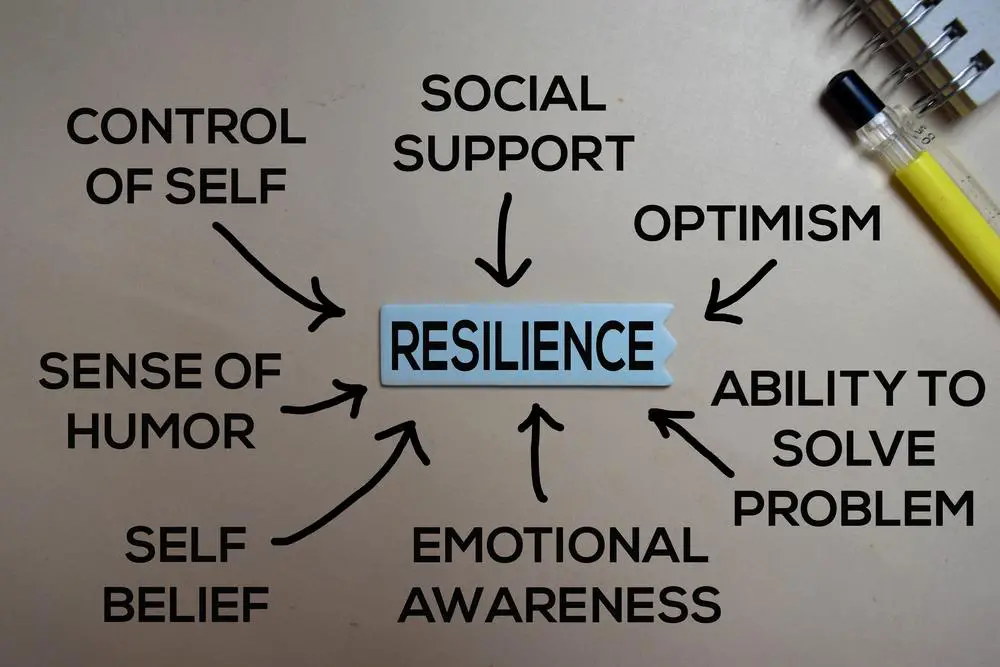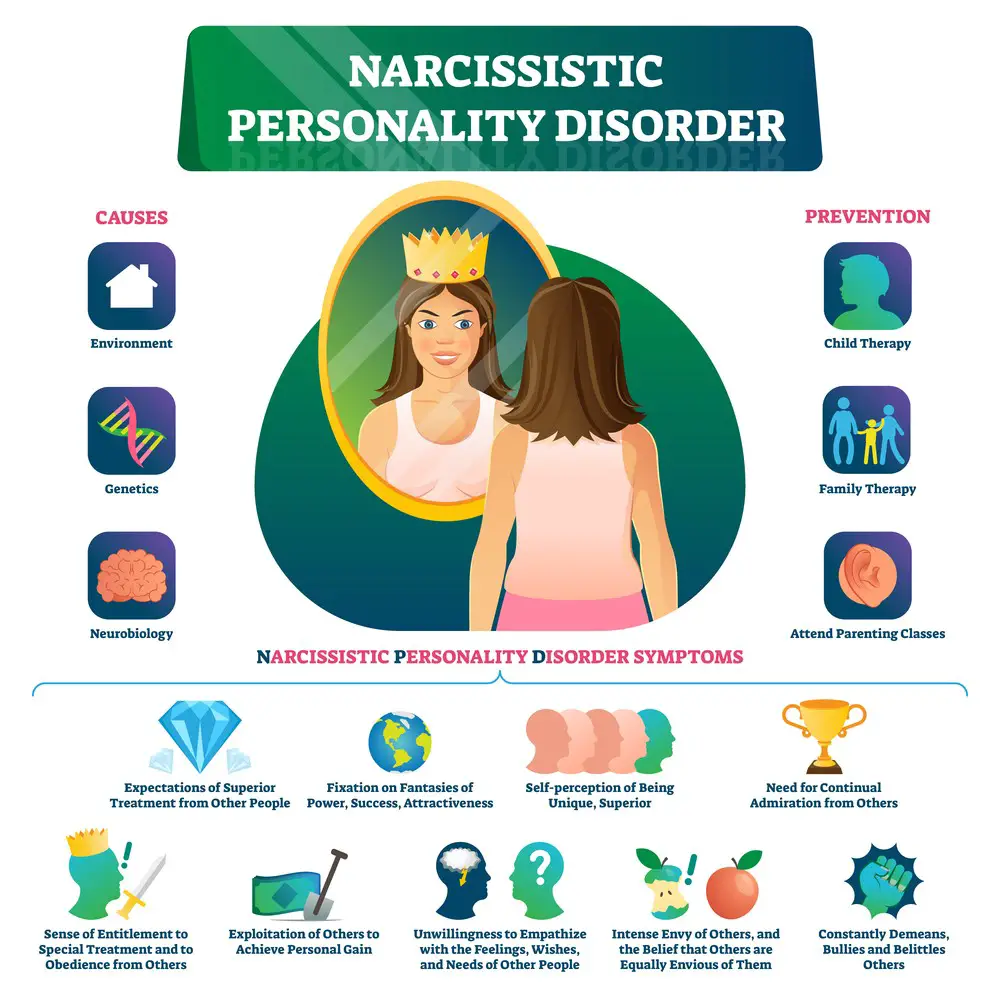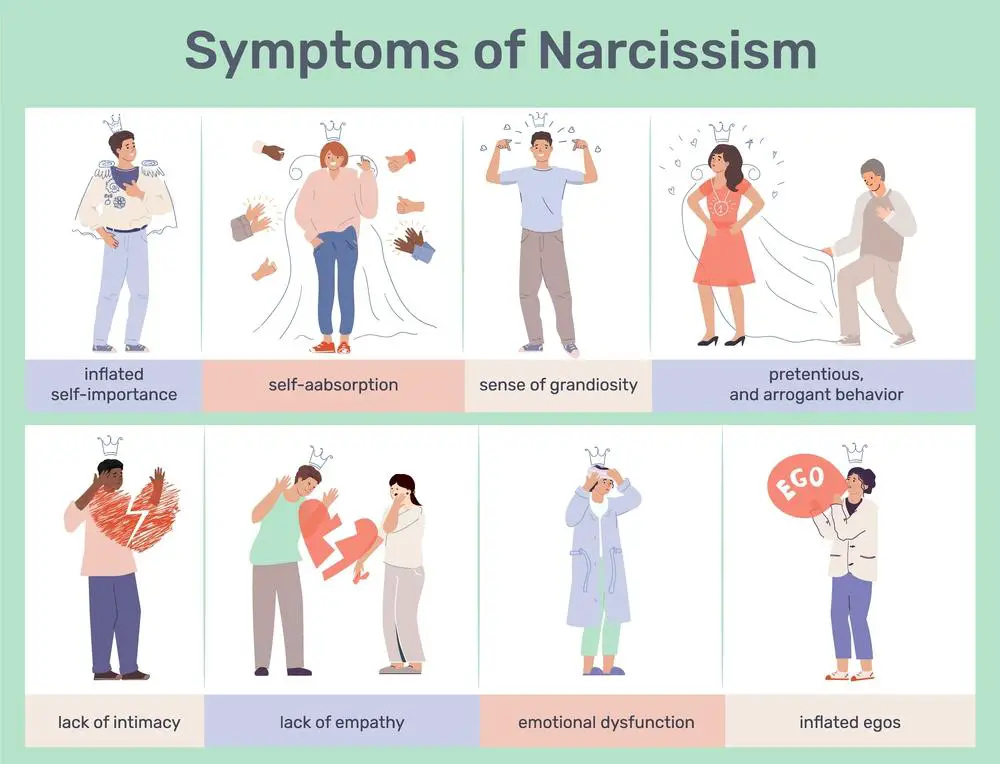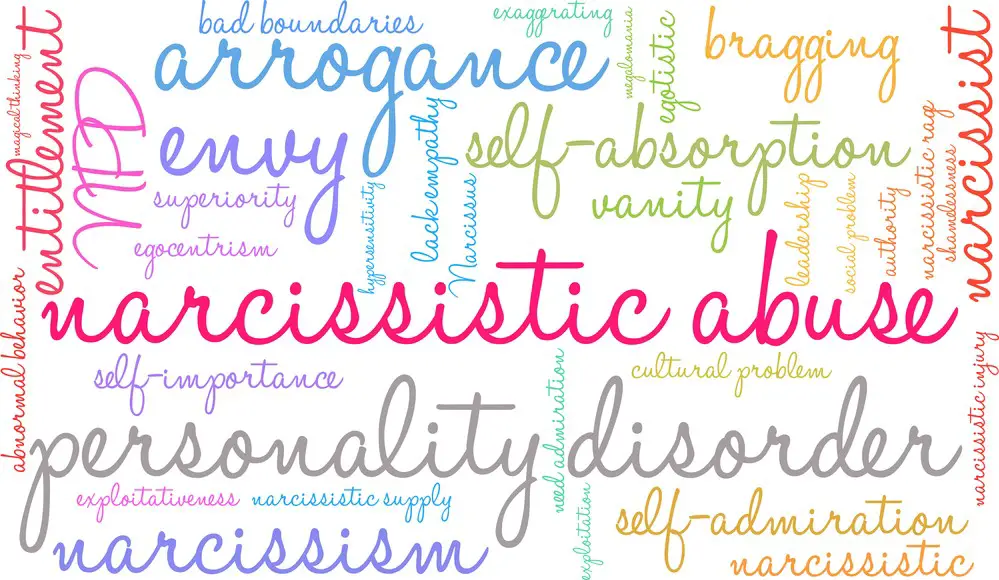As a BetterHelp affiliate, we receive compensation from BetterHelp if you purchase products or services through the links provided
Co-parenting with a narcissist presents unique challenges that demand a carefully crafted approach to ensure the well-being and stability of your children. When you’re navigating this particularly rocky terrain, it’s imperative to have a game plan that protects your interests and, most importantly, those of your kids. Recognizing the intricacies of dealing with a narcissistic ex-partner can mean the difference between ongoing conflict and a more peaceful co-parenting arrangement. Hence, finding the right balance in communication, emotional self-care, and legal matters becomes pivotal.
One of the first steps to co-parenting effectively with a narcissist is to establish firm boundaries. You’ll need a clear understanding of what is acceptable and what isn’t and the ability to communicate those boundaries respectfully yet assertively. Additionally, creating a parenting plan that’s as detailed as possible helps to minimize the chances of misunderstandings and provides a structured guide for both parents to follow. Even when tension is high, focusing on consistent strategies to protect your children’s interests is paramount.
Dealing with the inevitable roller coaster of emotions requires you to be kind to yourself and vigilant. Engaging in self-care practices, maintaining your emotional stability, and building a supportive network around you are key. You can’t effectively parent if you’re drained, so taking care of your health and emotional well-being is not a luxury—it’s a necessity. Furthermore, having an awareness of legal and custodial considerations lays the groundwork for a secure parenting framework that can weather the challenges of co-parenting with a narcissist.
Key Takeaways
- Co-parenting with a narcissist requires a clear plan and firm boundaries to protect the children’s well-being.
- Developing a detailed parenting plan and maintaining open, protective communication can mitigate conflicts.
- Prioritizing self-care, building a support network, and staying informed on legal issues are essential for stability.
14 Essential Rules for Co-Parenting with a Narcissist
When co-parenting with a narcissist, it’s crucial to establish clear guidelines and strategies to navigate the unique challenges this situation presents. Here are 14 rules that might be helpful for your blog post:
- Set Clear Boundaries: Establish firm boundaries about communication and responsibilities. Be specific about what is acceptable and what is not.
- Keep Communication Strictly About the Children: Focus conversations solely on the needs and well-being of the children to avoid unnecessary conflicts.
- Use Written Communication When Possible: Opt for emails or texts for record-keeping and to reduce direct confrontations.
- Avoid Emotional Responses: Stay calm and composed in interactions. Respond factually, not emotionally, to reduce the impact of provocation.
- Maintain Consistent Rules and Routines for Children: Provide stability for your children by keeping consistent rules and routines across both households.
- Document Everything: Record all interactions, agreements, and incidents. This can be useful for legal or therapeutic purposes.
- Engage in Parallel Parenting: If co-parenting is too conflictual, consider parallel parenting, where each parent makes decisions independently while the child is in their care.
- Seek Legal Advice When Necessary: Understand your legal rights and responsibilities. Consult a lawyer if conflicts escalate.
- Utilize a Third-Party Mediator: If direct communication is challenging, use a neutral third party or mediator to facilitate discussions.
- Prioritize Your Own Mental Health: Engage in self-care and seek support from therapists, support groups, or friends to manage stress.
- Educate Yourself About Narcissism: Understanding the traits of narcissism can help you anticipate challenges and respond effectively.
- Keep Expectations Realistic: Accept that you may not receive the cooperation or empathy you hope for and plan accordingly.
- Be a Stable Force for Your Children: Provide emotional support and security for your children amidst the challenges.
- Avoid Speaking Negatively About the Other Parent to Your Children: Protect your children’s mental well-being by refraining from negative discussions about the other parent in their presence.
These rules aim to create a framework that protects the children’s interests while minimizing conflicts and stress for both parents. Every situation is unique, so adapting these guidelines to fit specific circumstances is essential.
 Understanding Co-Parenting with a Narcissist
Understanding Co-Parenting with a Narcissist
When you’re co-parenting with a narcissist, you’re navigating a unique set of challenges. Narcissism is characterized by a lack of empathy, a need for admiration, and often an inflated sense of self-importance. This can make co-parenting feel like an uphill battle.
Key Principles:
- Keep Communication Clear: Focus on concise and factual exchanges.
- Set Boundaries: Establish clear limits for interaction.
Narcissistic personality disorder (NPD) is a condition marked by long-term patterns of behavior that are different from societal expectations. If your co-parent has NPD, they may struggle with understanding or prioritizing your child’s needs.
Here are some things to keep in mind:
- Your Child’s Needs: Always put the well-being of your children first.
- Predict Challenges: Be prepared for difficulties in cooperation and expect to uphold boundaries consistently.
- Documentation Is Your Friend: Keeping a record of communication can be helpful.
Co-parenting strategies involving a narcissist require solid boundaries and often third-party assistance to keep interactions neutral.
Key Takeaway: Your primary focus should be on the health and happiness of your child while maintaining your own well-being through structured interactions and support systems.
 Establishing Boundaries and Communication Rules
Establishing Boundaries and Communication Rules
Crafting a co-parenting approach with a narcissist demands clear boundaries and communication rules. More importantly, these must be adhered to consistently to ensure a predictable and hassle-free co-parenting journey.
Effective Communication Strategies
Remember, it’s vital to communicate clearly and without emotion. Here are ways to keep your exchanges to the point:
- Choose Written Forms: Favor email or text messages to keep a record.
- Be Specific and Brief: State necessary information and avoid personal comments.
- Set Expected Response Times: Agree on a reasonable reply timeframe to avoid unnecessary stress.
Key takeaway: Opt for written communication to create clarity and maintain records.
Setting Healthy Boundaries
Healthy boundaries protect you and your children from potential conflict:
- Define Accessibility: Set specific times when you will respond to communication.
- Stick to the Agenda: Only discuss child-related issues to minimize emotional entanglements.
- Control the Narrative: Don’t feel pressured to share more than what pertains to the children’s well-being.
Key takeaway: Establish clear rules on what will be communicated, when, and how.
 Dealing with Conflict
Dealing with Conflict
Conflict may arise but can be managed through careful steps:
- Document Everything: Keep a log of interactions if you need evidence of communication patterns.
- Don’t Escalate: Respond firmly but without hostility. If an agreement can’t be reached, consider mediation.
- Seek Professional Advice: Don’t hesitate to consult a legal or psychological professional if conflicts persist.
Key takeaway: Stay calm and collected, document interactions, and seek help when necessary.
Creating a Narcissist-Proof Parenting Plan
Crafting a parenting plan with a narcissist can be tricky. It requires a delicate balance of legal safeguards and a steadfast focus on your children’s well-being to ensure their needs remain the priority.
Legal Considerations
- Custody: Seek a legally binding custody agreement through the court. This minimizes opportunities for manipulation and sets clear guidelines. Your lawyer will be instrumental in this process.
- Court Orders: Ensure all agreements are officially documented as court orders. This holds all parties accountable and offers a pathway for enforcement if the plan is breached.
Key Takeaway: Review formal legal structures such as custody agreements and court orders to establish enforceable boundaries and responsibilities.
Focusing on Children’s Needs
- Emotional Health: Prioritize your children’s emotional needs by creating a plan that promotes stability and minimizes conflict.
- Consistency: Strive for consistency in routines between households. This helps children to feel secure amidst the changes.
Key Takeaway: Your children’s emotional security and day-to-day stability are paramount when co-parenting with a narcissist.
 Handling Emotions and Self-Care
Handling Emotions and Self-Care
When co-parenting with a narcissist, your emotional well-being and self-care routines are critical for maintaining balance and resilience.
Managing Your Emotions
You’re on a roller coaster of emotions, but you mustn’t let them derail you. Here’s how:
- Recognize: Acknowledge your feelings without judgment. Whether it’s anger, frustration, or sadness, recognizing them is the first step to managing them.
- Strategies for control:
- Deep breathing exercises can help calm your mind.
- Set boundaries to protect yourself from emotional harm.
Key takeaway: Understanding and controlling your emotions is pivotal for a healthier co-parenting journey.
Self-Care for the Co-Parent
Self-care isn’t selfish; it’s essential. Here’s your game plan:
- Make Time: Schedule regular ‘me time’ to recharge. Even small breaks can make a big difference.
- Support Network: Lean on friends, family, or a support group who understand what you’re going through.
- Therapy: A therapist specializing in narcissistic relationships can be an invaluable ally for your mental health.
Key takeaway: Investing in self-care enables you to be a better parent and handle the challenges of co-parenting with strength and clarity.
Protecting the Children’s Interests
In co-parenting with a narcissist, your most pivotal role is to maintain a nurturing environment for your children. This is crucial for countering the possible negative impacts of a narcissist’s behavior.
Shielding from Narcissistic Traits
Understanding and mitigating the adverse effects of narcissistic traits can shield your kids from potential emotional fallout. Here are a few strategies:
- Set Boundaries: Establish what is acceptable behavior around the children. Firmly uphold these limits with consistency.
- Limit Exposure: Structure the children’s time in such a way that their interaction with narcissistic tendencies is minimal, without impeding the other parent’s access.
Key Takeaway: Creating boundaries is a vital defense against the intrusion of unhealthy narcissistic behavior in your children’s lives.
Fostering Emotional Well-Being
Your children’s emotional health thrives on stability and understanding. Here are some ways to bolster their emotional well-being:
- Open Communication: Encourage your children to share their feelings and reassure them that their emotions are valid and heard.
- Positive Affirmations: Regularly affirm your children’s self-worth and strengths to build their confidence and counteract any devaluing messages.
Key Takeaway: Ensuring your children feel supported and valued is essential for their emotional resilience.
Education and Social Life
Nurturing the educational and social facets of your children’s lives forms a cornerstone in their development. Consider these points:
- Stable Learning Environment: Work with educators to provide a consistent, distraction-free learning space for your children.
- Encourage Social Networks: Support involvement in extracurricular activities and friendships that offer positive reinforcement and a sense of community.
Key Takeaway: A stable education and active social life are key components in fostering a well-rounded development for your children amidst co-parenting challenges.
 Strategies for Parallel Parenting
Strategies for Parallel Parenting
When co-parenting with a narcissist, establishing a method that minimizes conflict and maintains each parent’s control within their respective domains is crucial. Parallel parenting allows for just that.
Defining Parallel Parenting
Parallel parenting is an approach where you and your ex-partner parent side by side but with minimal interaction and lower conflict. It’s about disengaging from each other while remaining fully connected to your children.
- Key Components:
- Separate parenting spheres
- Minimal direct communication
- Use of written communication
- Boundaries clearly defined
In this method, control is exercised within your parenting time without interference from the other parent. It’s not about winning or losing; it’s about creating a structured environment for your children.
Implementing Parallel Parenting Techniques
The success of parallel parenting lies in the details. Here’s how you can implement this strategy effectively:
Communication Channels:
- Use neutral platforms like email or specialized co-parenting apps.
- Stick to factual updates about your children’s well-being and schedules.
Decision-Making:
- Divide decision-making duties. You might handle education decisions, while your ex might make health-related decisions.
- When joint decisions are necessary, keep it business-like and document your agreements.
Schedules and Transitions:
- Keep transitions brief and conflict-free.
- Follow a written parenting plan strictly to avoid misunderstandings.
Handling Disagreements:
- Decide on a process for resolving disputes, possibly involving a third-party mediator.
- Don’t engage in conflict in front of the children.
Key Takeaway: By implementing parallel parenting, you can maintain your parenting role with autonomy and reduce the stress of interacting with a narcissistic ex-partner. Remember to focus on what’s best for your children and separate personal issues.
 Legal and Custodial Considerations
Legal and Custodial Considerations
When navigating co-parenting with a narcissist, being informed about your legal and custodial rights is crucial. Let’s tackle how to best approach legalities and custody plans for the well-being of your children.
Understanding Custody Rights
Custody is at the heart of co-parenting. Two types are recognized:
- Sole custody, where you or your ex-partner has the exclusive right to make decisions for the child and hold physical custody.
- Joint custody, implies shared decision-making and often time spent with both parents.
For your situation:
- Obtain a legal parenting plan. This document outlines custody arrangements, visitation schedules, and decision-making protocols.
- If your ex-partner is a narcissist, they might challenge custody agreements. Be prepared to demonstrate how custody proposals are in the child’s best interests.
Key Takeaway: Your rights are entrenched in the parenting plan, ensuring clarity and legal support for any disputes.
Utilizing Mediators and GAL
Sometimes, a middle ground is hard to find. Here’s where professionals come in:
- A mediator can help facilitate conversations, striving for a settlement without going to court. They do not make decisions but can help you and your former partner reach an agreement.
- A Guardian Ad Litem (GAL) is appointed to represent the child’s interests in contentious custody cases.
Points to remember:
- Mediators are neutral and trained to assist negotiations effectively.
- A GAL investigates the child’s circumstances and provides recommendations to the court.
Key Takeaway: Professionals like mediators and GALs can be invaluable allies, providing objective insights and support in a fraught situation.
Maintaining Personal Security and Privacy
Ensuring your safety and keeping your personal life private is paramount when co-parenting with a narcissist. It’s about smart strategies to safeguard your information and interactions.
Documenting Interactions
Keep a meticulous record of all communications between you and the narcissistic co-parent. You may consider:
- Writing down details of in-person conversations immediately after they happen.
- Saving all written correspondence, such as texts, emails, and social media messages.
- Using a dedicated notebook or digital app specifically for this purpose which can help you stay organized and ensure nothing is forgotten.
Key Takeaway: Consistent documentation creates a factual reference, which can be vital for legal or therapeutic contexts.
Privacy and Information Sharing
It would be best if you were especially vigilant about your privacy. Strategies include:
- Refraining from sharing personal information unnecessarily with the narcissistic co-parent.
- Educating and involving any necessary third parties, such as schools or healthcare providers, about the need for privacy regarding your personal information.
- Using privacy settings on social media to control what information the narcissistic co-parent can see.
Key Takeaway: Protecting your personal information isn’t just about privacy; it’s also about maintaining control in your relationship with the narcissist.
Building a Support Network
Establishing a reliable support network is crucial when co-parenting with a narcissist. It involves securing professional guidance and nurturing strong connections with friends and family who understand your situation.
Finding Professional Support
Taking the initiative to seek professional assistance can provide structure and objectivity. A licensed clinical social worker (LCSW) is well-equipped to help you navigate the complexities of your co-parenting dynamics.
- Consult with Experts: Reach out to therapists or counselors who specialize in dealing with narcissistic behavior.
- Utilize Hotlines: In times of urgent need, the National Domestic Violence Hotline offers immediate support and resources.
Connecting with Friends and Family
Your relationships are invaluable in providing emotional comfort and practical help.
- Build a Care Circle: Identify friends or family members who are sympathetic and willing to offer a listening ear or a helping hand when needed.
- Regular Check-Ins: Schedule routine calls or meetups with your support group for consistent reinforcement.
Key Takeaway: Arm yourself with a robust support network, balancing professional advice and personal relationships to maintain resilience and well-being.
Handling Special Circumstances
Co-parenting with a narcissist demands particular strategies, especially when facing holidays, medical decisions, and educational choices. It’s about keeping the peace for your child’s benefit while standing your ground.
Navigating Holidays and Special Events
Holidays can be a battleground or a truce, depending on how you approach them.
- Plan Ahead: Set dates and times for holiday celebrations well in advance to avoid last-minute conflicts.
- Be Specific: Specify details such as location, pick-up times, and activities to minimize confusion.
Key Takeaway: Clear, advanced planning helps manage expectations and reduces stress during holidays and special events.
Medical and Educational Decisions
These are areas where collaboration is key, but with a narcissistic co-parent, it can be challenging.
- Information Sharing: Ensure both parties can access all necessary information regarding the child’s medical and educational records.
- Expert Advice: To avoid power struggles, lean on professionals such as doctors or teachers.
Key Takeaway: Prioritize your child’s well-being by keeping informed and deferring to experts for important decisions.
Continual Adaptation and Re-evaluation
Co-parenting with a narcissist means you often have to modify plans and reassess how things are working. Keep your children’s needs at the forefront as you navigate these challenges.
Adjusting to Changes in Circumstances
Life changes are inevitable, and they can happen swiftly. Here’s how you can manage:
- Stay Proactive: Keep ahead of changes by regularly touching base with your expectations and preparing to talk about potential adjustments.
- Flexible Mindset: Embrace a can-do attitude that understands compromise is not a sign of weakness but rather an adjustment for your children’s well-being.
Key Takeaway: Roll with the punches and be willing to tweak your parenting plan when life throws a curveball.
Periodic Re-Evaluation of Arrangements
Regular check-ins on your parenting arrangements ensure they stay effective and meet your children’s evolving needs. Here’s your action plan:
- Set Regular Intervals: Agree on a time frame, such as every six months, to sit down and review the parenting plan.
- Assess and Communicate: Evaluate what’s working and what isn’t. Discuss possible improvements with your co-parent in a fact-based manner.
Key Takeaway: Periodic reassessments keep everyone on the same page and focused on what’s best for your children.
 Recognizing the Red Flags of Parental Alienation in Narcissistic Co-Parenting
Recognizing the Red Flags of Parental Alienation in Narcissistic Co-Parenting
Parental alienation is a serious issue, particularly prevalent in situations involving a narcissistic co-parent. This manipulation tactic can have long-lasting negative effects on the child’s relationship with the alienated parent. Here are some signs to look out for:
- Sudden Change in Child’s Attitude: If your child’s behavior towards you changes drastically without an apparent reason, it might be a sign of influence from the other parent.
- Repeating Negative Remarks: Pay attention if your child starts making negative or disparaging comments about you that echo the other parent’s sentiments.
- Rejection or Withdrawal: It might be a red flag if your child begins to reject or withdraw from you without any justified cause.
- Unfounded Blame: The child might irrationally blame you for various issues or express unwarranted anger towards you.
- Resistance to Visitations: A sudden reluctance or refusal to visit or spend time with you can be a warning sign.
- Exclusion from Child’s Life: Being kept out of the loop regarding important events or updates in your child’s life is a common tactic in parental alienation.
It’s essential to recognize that narcissists may attempt to weaponize children as a means of exerting control and damaging the other parent’s relationship with the child. Understanding these signs helps in taking timely and appropriate actions to safeguard both your and your child’s emotional well-being. If you notice these signs, seeking professional guidance from a therapist or legal counsel may be helpful to address the situation effectively.
Frequently Asked Questions
Navigating co-parenting with a narcissistic ex-partner presents unique challenges, but with the right strategies, it’s manageable. The questions below are specifically tailored to help you handle tricky situations effectively.
How can you maintain a no-contact rule while co-parenting with a narcissistic ex-partner?
You can maintain a no-contact rule using a third-party communication service designed for co-parenting. These services allow you to exchange necessary information about your child’s well-being and schedule without direct interaction.
Key Takeaway: Utilize third-party services to minimize direct contact.
What are effective strategies for communicating with a narcissistic co-parent?
Keeping all communication business-like, factual, and devoid of personal feelings is best. Use written forms of communication such as email or co-parenting apps where conversations are documented.
Key Takeaway: Keep communication with your narcissistic co-parent, as documentation is crucial.
How can you set and enforce boundaries when co-parenting with a narcissist?
Set clear and specific boundaries regarding communication and parenting practices. Constantly reinforce these limits calmly and consistently, without emotional reactions, even when challenged.
Key Takeaway: Be consistent and unemotional when reinforcing your boundaries.
What tips can help in dealing with a covert narcissistic co-parent?
Understand their behavior patterns and remain unfazed by manipulation attempts. Create a support system for emotional and legal advice. Documentation of interactions and agreements can also be crucial.
Key Takeaway: Stay aware and document everything when dealing with a covert narcissist.
What should be included in a parenting plan when one parent is a narcissist?
A parenting plan should include specific terms for visitation, communication guidelines, decision-making processes, and consequences for violating the agreement. Being detailed prevents the narcissistic parent from exploiting vague clauses.
Key Takeaway: A detailed parenting plan reduces the opportunity for manipulation.
How can a narcissistic parent’s behavior impact child support and custody decisions?
Their behavior can influence the court’s view on what’s in the child’s best interest. It’s important to document instances of narcissistic behavior as evidence for custody hearings. Courts may alter custody arrangements if the narcissistic behavior is detrimental to the child.
Key Takeaway: Document behavior to demonstrate its impact on custody decisions.

Meet Jacob Maslow: Navigating Co-Parenting Challenges
Personal Journey with Narcissism and Co-Parenting
I’m Jacob Maslow, a writer and advocate for mental health and effective co-parenting strategies. My journey with a narcissistic ex-partner has led me through the complexities of reunification therapy, legal custody battles, and the heartache of parental alienation. My ex’s severe narcissism became more evident as she stopped cooperating with reunification therapy, ultimately leading to complete alienation from my children.
Mental Health Advocacy and Personal Coping Strategies
Managing my mental health is a vital part of my life. I use Lexapro and have been a long-time participant in therapy, recently joining BetterHelp. Daily long walks are my sanctuary for mental clarity. Sharing these experiences, I aim to provide support and insight to others facing similar challenges.
Professional Insight and Resources
Writing and Legal Support Initiatives
My writing focuses on mental health and narcissistic behavior, aiming to assist those dealing with narcissistic partners. I believe in the power of support and information in overcoming mental health issues. Additionally, I manage a legal site dedicated to assisting individuals whose spouses defy court orders, particularly in parenting matters.
Building Connections Through Relationship Advice
I also run a relationship site, offering guidance and support for those navigating complex relationship dynamics, including those involving narcissism and co-parenting.
Continued Battle and Commitment to Help Others
Despite the ongoing court struggles and the recent cutoff from my children, I remain committed to sharing my journey. I hope to help others navigate similar turbulent situations with greater ease and understanding.

.
- 3 Ways Wearing a Hat Can Help Lower Your Stress Levels - April 19, 2025
- Breaking the Silence: Why Men’s Mental Health Matters More Than Ever - April 15, 2025
- How to Transform a Home’s Patio Space into a Relaxing Space - March 23, 2025
This site contains affiliate links to products. We will receive a commission for purchases made through these links.



 Understanding Co-Parenting with a Narcissist
Understanding Co-Parenting with a Narcissist Establishing Boundaries and Communication Rules
Establishing Boundaries and Communication Rules Dealing with Conflict
Dealing with Conflict Handling Emotions and Self-Care
Handling Emotions and Self-Care Strategies for Parallel Parenting
Strategies for Parallel Parenting Legal and Custodial Considerations
Legal and Custodial Considerations Recognizing the Red Flags of Parental Alienation in Narcissistic Co-Parenting
Recognizing the Red Flags of Parental Alienation in Narcissistic Co-Parenting
